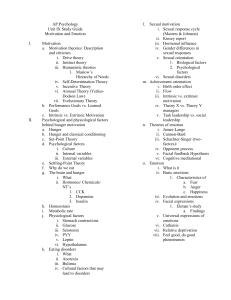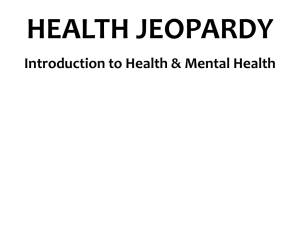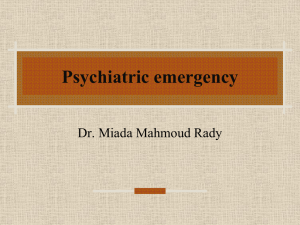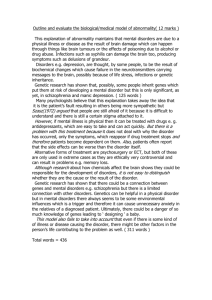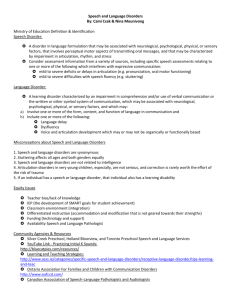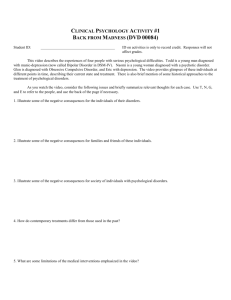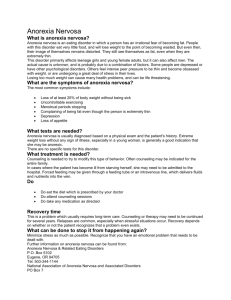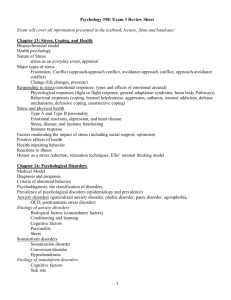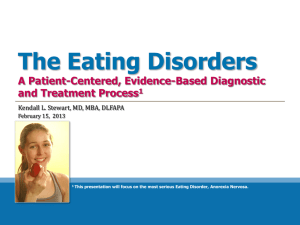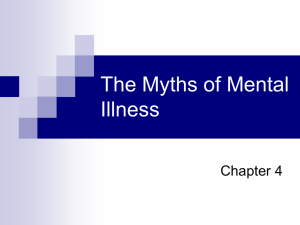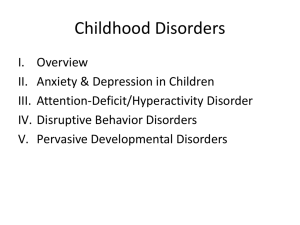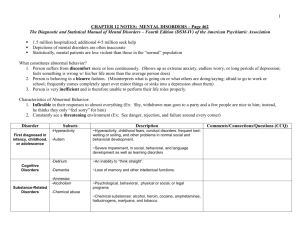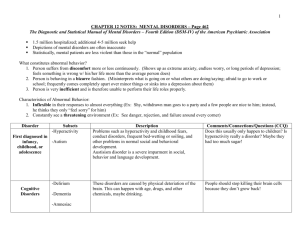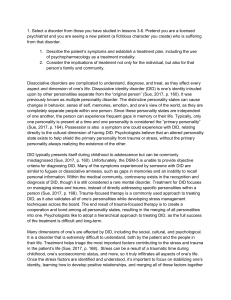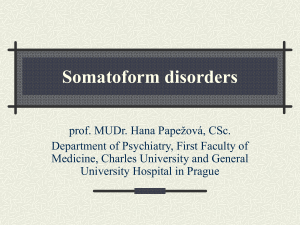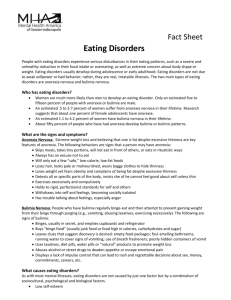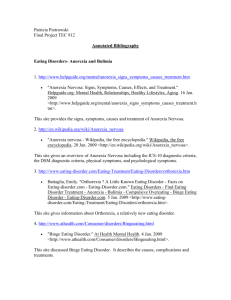doc
advertisement
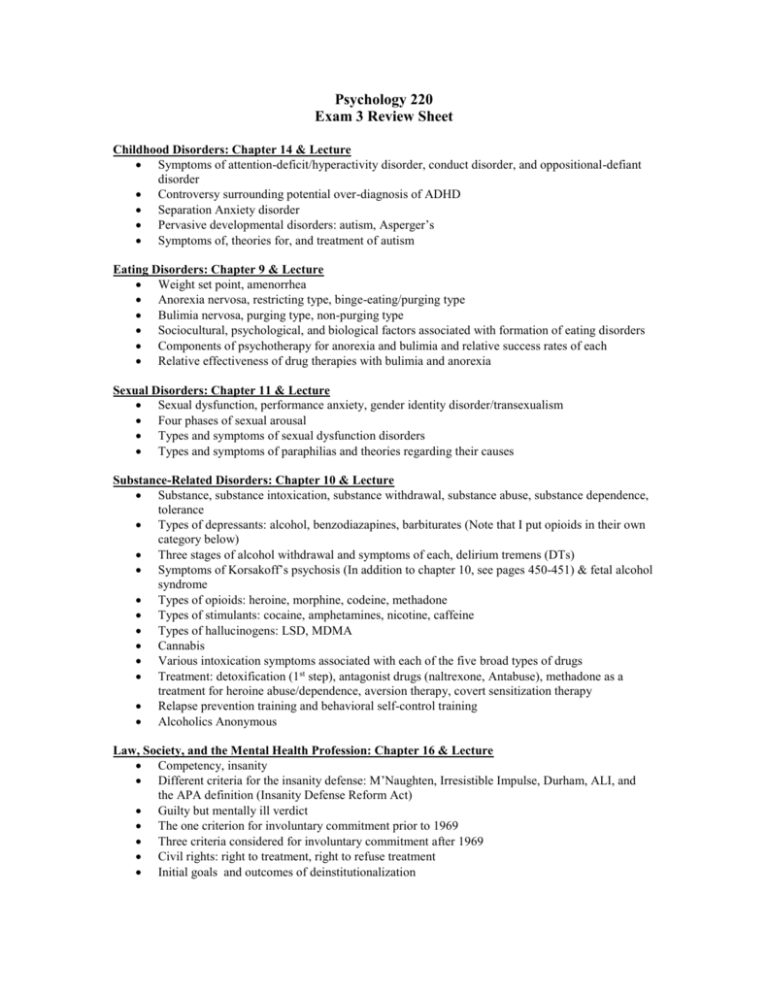
Psychology 220 Exam 3 Review Sheet Childhood Disorders: Chapter 14 & Lecture Symptoms of attention-deficit/hyperactivity disorder, conduct disorder, and oppositional-defiant disorder Controversy surrounding potential over-diagnosis of ADHD Separation Anxiety disorder Pervasive developmental disorders: autism, Asperger’s Symptoms of, theories for, and treatment of autism Eating Disorders: Chapter 9 & Lecture Weight set point, amenorrhea Anorexia nervosa, restricting type, binge-eating/purging type Bulimia nervosa, purging type, non-purging type Sociocultural, psychological, and biological factors associated with formation of eating disorders Components of psychotherapy for anorexia and bulimia and relative success rates of each Relative effectiveness of drug therapies with bulimia and anorexia Sexual Disorders: Chapter 11 & Lecture Sexual dysfunction, performance anxiety, gender identity disorder/transexualism Four phases of sexual arousal Types and symptoms of sexual dysfunction disorders Types and symptoms of paraphilias and theories regarding their causes Substance-Related Disorders: Chapter 10 & Lecture Substance, substance intoxication, substance withdrawal, substance abuse, substance dependence, tolerance Types of depressants: alcohol, benzodiazapines, barbiturates (Note that I put opioids in their own category below) Three stages of alcohol withdrawal and symptoms of each, delirium tremens (DTs) Symptoms of Korsakoff’s psychosis (In addition to chapter 10, see pages 450-451) & fetal alcohol syndrome Types of opioids: heroine, morphine, codeine, methadone Types of stimulants: cocaine, amphetamines, nicotine, caffeine Types of hallucinogens: LSD, MDMA Cannabis Various intoxication symptoms associated with each of the five broad types of drugs Treatment: detoxification (1st step), antagonist drugs (naltrexone, Antabuse), methadone as a treatment for heroine abuse/dependence, aversion therapy, covert sensitization therapy Relapse prevention training and behavioral self-control training Alcoholics Anonymous Law, Society, and the Mental Health Profession: Chapter 16 & Lecture Competency, insanity Different criteria for the insanity defense: M’Naughten, Irresistible Impulse, Durham, ALI, and the APA definition (Insanity Defense Reform Act) Guilty but mentally ill verdict The one criterion for involuntary commitment prior to 1969 Three criteria considered for involuntary commitment after 1969 Civil rights: right to treatment, right to refuse treatment Initial goals and outcomes of deinstitutionalization Duties and ethical responsibilities of clinicians: focus on guidelines 5 & 6 (duty to protect & Tarasoff ruling, confidentiality)
